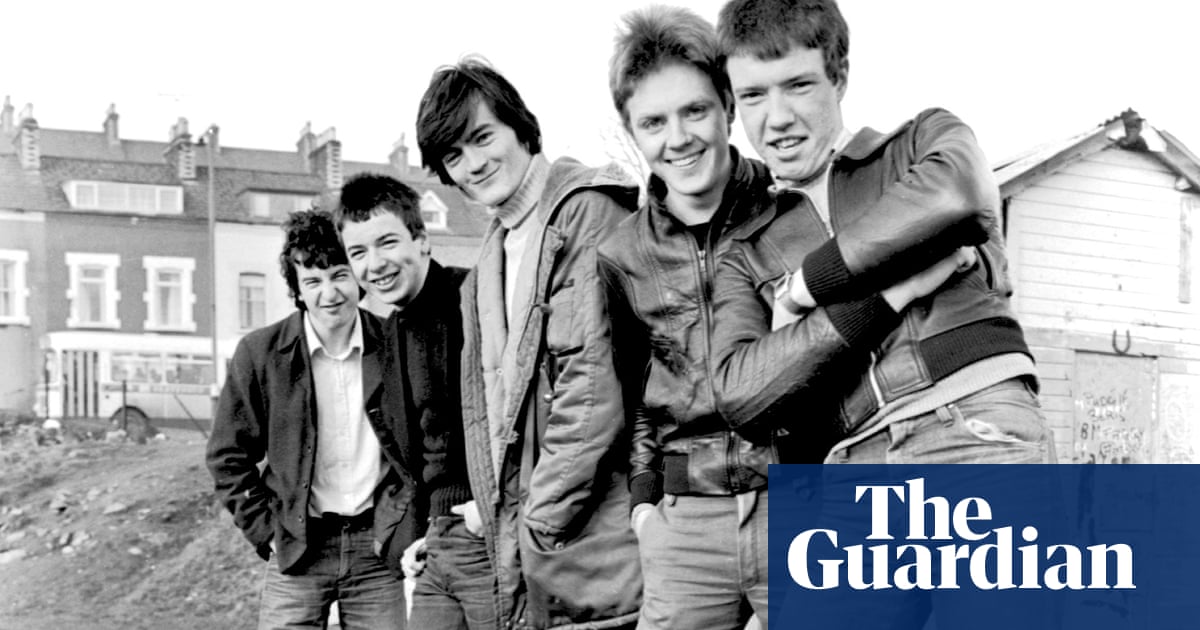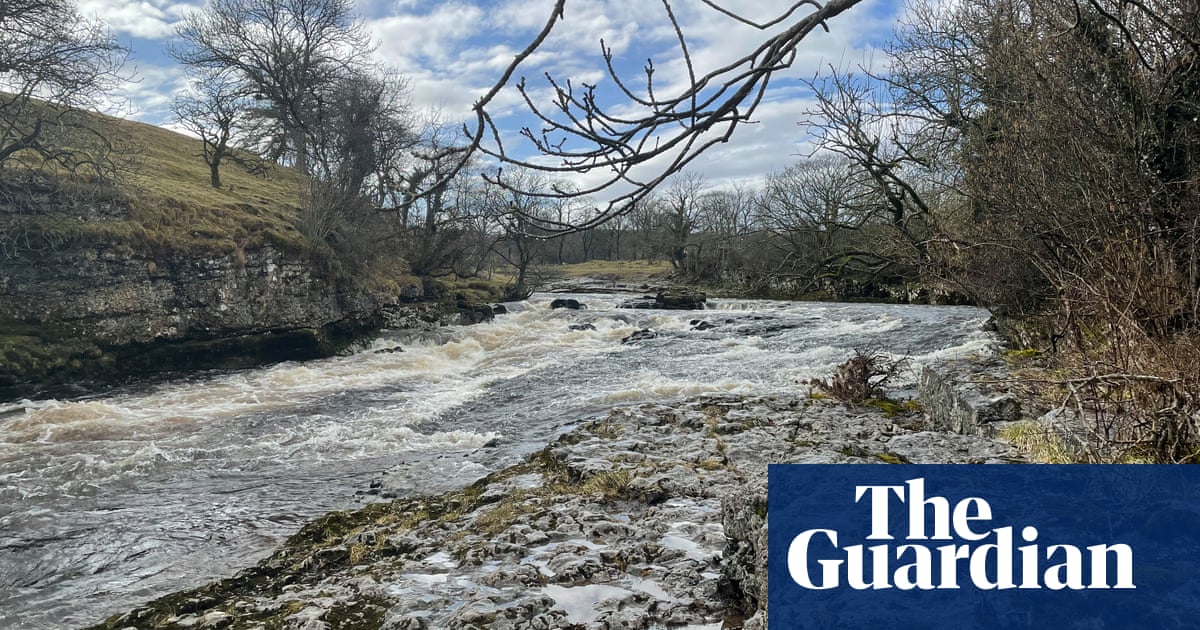
‘What’ve I done? Made an eejit of myself?” Terri Hooley snaps when I praise his myriad achievements. “I’m fed up being called The Godfather of Punk – I’m not. I’m just an old hippy and punk was hippies’ revenge, cos you didn’t listen to us first time round!”
I had been warned Hooley might be cranky due to the dialysis he undergoes thrice weekly, combined with a busy schedule that involved DJing at recent gigs by the Northern Irish punk bands he brought to light – the Undertones and the Outcasts – and promoting the just-published biography Terri Hooley: Seventy-Five Revolutions, by Stuart Bailie. Turning to this biography makes Hooley perk up. “I think it’s wonderful,” says the man whose championing of punk during the Troubles gave the region’s youth hope. “When Stuart first told me about it, I thought he was mad!” Hooley’s now all charm, happy to relive his extraordinary life.
Seventy-Five Revolutions, published to mark Hooley’s 75th birthday on 23 December, documents a life shaped by trauma and violence. Born in 1948 into an east Belfast Protestant family – his father a distant, authoritarian figure – six-year-old Terrence lost an eye in an accident, reinforcing his outsider sensibility. Music provided an early refuge and, aged 17, Hooley was known as Belfast’s premier DJ. Meanwhile, his opposition to the Vietnam war won Hooley local notoriety: this included confronting Bob Dylan at his May 1966 Belfast concert over the singer’s refusal to stop paying taxes as a protest about the war. Dylan told him to “fuck off”.
His encounters with stars are legion, whether corresponding with Bob Marley in the 1960s, booking Shane MacGowan’s first ever Northern Irish concert (“he was wary of Belfast and said, ‘I’m keeping my head down’”), snogging Cilla Black or punching John Lennon. The Lennon incident happened on a visit to London around 1970 when Hooley was introduced to Lennon via pals on Oz magazine. The former Beatle mistook him for an IRA supporter and – in his pre-pacifist days – offered to supply him with weapons. “He was stoned so it wasn’t my proudest moment,” says Hooley. “When I met Cynthia [Lennon’s first wife] and told her, she said, ‘You should have hit him harder!’”
Violence seemed to be erupting all around him in early 70s Belfast. “When I was growing up there were 80 clubs,” he recalls, “and then the Troubles began and all the venues shut down and everyone went home.” But Hooley remained in Belfast as the conflict worsened, starting counterculture magazines and pirate radio stations. An attempted kidnapping by armed men only made him even more determined to champion nonsectarianism: in 1977 Hooley and friends transformed a derelict building in Great Victoria Street into a record shop “on the most bombed half-mile in Europe”. Naming it Good Vibrations – after the Beach Boys hit – suggested both optimism and irony.
The shop’s success meant local punk bands encouraged Hooley to record and promote them. He duly did so: “Just bringing people together, giving kids hope, and putting Belfast back on the music map.” The new Good Vibrations label’s fourth single was by an unknown Derry band. Hooley sensed he had something special but, when he hawked the Undertones’ Teenage Kicks to London-based labels, they rejected it. “CBS, EMI, anyone who would see me, said no. I went to Rough Trade, then the biggest indie label, and they told me it was the worst record they’d ever heard. I went back to Belfast in bits. Then John Peel played it. Twice in a row.”
Teenage Kicks is now recognised as a classic, and other Good Vibrations releases by the Outcasts and Rudi spearheaded a furiously creative scene. But the label’s shoestring budget and Hooley’s haphazard approach to business – “I’ve never liked the music industry … I’m not a businessman in the slightest so I shouldn’t have been in charge” – ensured only the Undertones would win wider fame. Hooley’s huge enthusiasms made him a local hero yet, for refuting sectarianism, he was targeted with insults, death threats and a savage beating in Good Vibrations.
Now living in suburban Bangor, Hooley suffers from PTSD. “I never go to bed before 2.30am because the loyalist drinking clubs used to close at 2am and I’d stay awake to see if they were coming for me. I know they’re not going to now, but I still live with the trauma. I had friends who joined the paramilitaries and later regretted it. The paras who attacked me later gave me cards apologising – they’re now Christians.”
Declared bankrupt in 1982, Hooley remained active on Belfast’s music scene until 2015 when ill health forced him to close his final record shop. By then he had been celebrated in the Good Vibrations biopic (Mark Kermode’s favourite film of 2013) and a jukebox musical of the same name whose recent off-Broadway run was praised by the New York Times. He also featured in the BBC’s documentary series Once Upon a Time in Northern Ireland. Quite something for a man who, by his own account, lived a chaotic lifestyle fuelled by drugs and alcohol. “Sometimes I have to pinch myself,” says Hooley. “A film, a musical and now a book all about me.”
Bailie’s beautiful biography rightly celebrates this “Belfast Cyclops” who loves music and preaches unity while remaining indifferent to material rewards. “Good Vibrations existed as a little oasis of positivity when everything was awful,” Hooley says, “when our country was having a collective nervous breakdown. I was as mad as the rest of them but I wanted love and peace, not violence and hate.”












